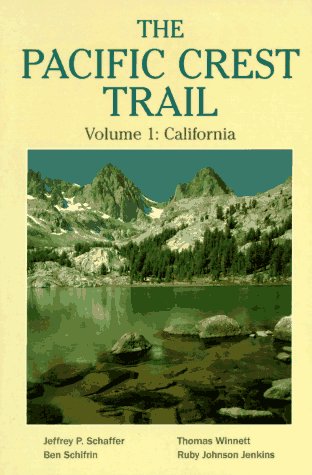 Cheryl Strayed,
while in her mid-twenties, traveled the Pacific Crest Trail from Mojave,
California to the Bridge of God near Portland, Oregon. It goes without saying
that during her hike she goes through a lot: the extreme burden of carrying her
over-packed backpack, the extreme variation of the weather (from extreme heat
to snow), unfriendly terrains and dangerous wildlife, boot problems (six loss
toenails), worries about being attacked and so on. But after eleven-hundred
miles she eventually makes it!
Cheryl Strayed,
while in her mid-twenties, traveled the Pacific Crest Trail from Mojave,
California to the Bridge of God near Portland, Oregon. It goes without saying
that during her hike she goes through a lot: the extreme burden of carrying her
over-packed backpack, the extreme variation of the weather (from extreme heat
to snow), unfriendly terrains and dangerous wildlife, boot problems (six loss
toenails), worries about being attacked and so on. But after eleven-hundred
miles she eventually makes it!
But what pushed
her onto taking this trip was the death of her mother. Bobbi, who had a rough
childhood and married life, was healthy throughout her life but after
surprisingly been diagnosed with lung cancer while in her mid-forties the
disease would take her life in a mere seven weeks (this section of the book is
the most heart-wrenching to read). This led to the disintegration of their
family and would send Cheryl into a dark spiral – she would drop out of school,
divorce her husband, and begin doing heroin. By coincidence seeing a travel
guide for the Pacific Crest Trail in a convenience store would change her life
and get it back on track.
Though she
wasn’t prepared for her trip she would eventually adapt, and through meeting
others she would learn new skills, and become all the better at hiking for it
(by the end she would be labeled the Queen of the PCT). She needs to change her path a few
times due to unseen weather circumstances (probably the early effects of global
warming) and her resupply packages, which she organized with her friend Lisa to
be sent to the many camps on the way, provide markers of her progress.
But there are many
themes throughout Wild: the
relationship a daughter has to her mother, experiences growing up poor, coping
with illness in the family, dealing with death and bereavement, how to start
your life again, divorce, friendships, self-love and that of others… There is
so much in Wild. It’s a major work
for our times.
During her hike
Strayed reads a lot and talks about writing in a journal (in the trailer for
the book you can also see some great photos that were taken). But it is the
many years spent between the actual hike and the writing of the book where the
maturity of the author can put her journey into perspective and reveal her
skills as a writer. Strayed’s journey inspires and Wild illustrates the power of good art to still move people.
Strayed during
her hike works so hard not to be afraid and describes being just motivated to
move forward. But it is her mother who she is trying to fully grasp and there
are several times where she describes the spirit of her around her.
Part of the book
takes place on the Sierra Nevada and the
film High Sierra is brought up, which is one of the book's only film reference. While the many literary influences include: each section begins with a couple inspiring quotes (the
one by Emily Dickinson, “If your Nerve, deny you— Go above your Nerve— ” is
especially striking) and Strayed, who is a literature major, is constantly reading (all of the books are listed at the back) and there are certain
chapters where one can detect potential literary influences (a group of people that pick
her up and describe their hard lives especially reminded me of Stephen King).
But all of this,
if it is anything, it is also very Valléeien. Even the Dickinson poem with its slant
rhymes, existential themes, and vivid imagery brings to mind the director of C.R.A.Z.Y. It’s a perfect match for Vallée:
a personal fresco that can be cinematically rendered, and with it the creation of an
alternative community and a humanizing outreach towards those in need. Similar to how Luc Moullet describes Fritz Lang, Vallée is also an auteurs
d’oeuvre. Wild seems like it
would perfectly fit within his body of work. Even Strayed’s point of view descriptions seem like
they would easily transfer into a gripping cinematic drama. Without even yet seeing
it I just know that Wild will be one
of the great films of the year!

No comments:
Post a Comment